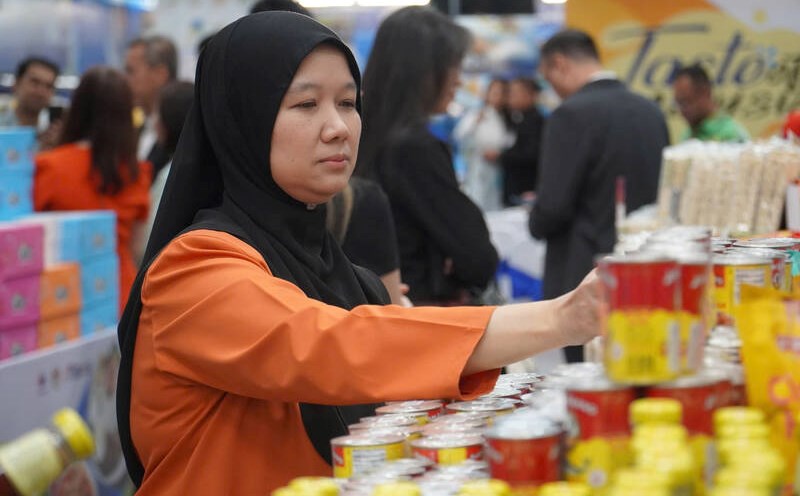flavor advantages and potential for the global Halal market
Ms. Le Phan Minh Hoa - Director of Global FMCG Sourcing Company said that for the Halal market (which is a permitted and legal product for use under the Law on Islam, with strict requirements from the smallest ingredients to the processing and transportation stage), the company is currently focusing on rice paper products. In the coming time, the company plans to expand to spices and related products, such as shrimp cake - which is widely used during Vietnamese holidays.
According to Ms. Hoa, the biggest advantage of Vietnamese products is the flavor. The taste of Vietnamese products is very special, not popular or similar to some other markets. For example, Thailand or China also have special products, but in general, Asian products are often quite similar. Meanwhile, Vietnamese products make a clear difference thanks to their own flavor.
Not only limited to the Muslim community, Halal products and services are increasingly popular with global consumers. Many countries that are not members of the Muslim community but have a large Muslim community such as France, Germany, the UK, and the US have also recorded an increasing demand for Halal products.
This opens up growth space beyond traditional markets, creating opportunities for Vietnamese products, especially agricultural products, processed foods, cosmetics and pharmaceuticals - expanding distribution channels, building brands associated with Halal values, while improving capacity to meet international standards.
Challenges of certification and requirements for international cooperation
Ms. Ho Thi Quyen - Deputy Director of the Ho Chi Minh City Investment and Trade Promotion Center said that currently, Vietnam does not have many Halal certification organizations that are widely recognized internationally. Domestic certification activities are still dispersed, lacking coordination between relevant agencies and units, causing obstacles for businesses in accessing the Halal export market, especially in the stages of certification verification, quality inspection and specialized logistics.
In addition, most Vietnamese food and agricultural processing enterprises are small and medium enterprises, with limited financial capacity, weak governance, and human resources lacking in-depth knowledge of Halal. The lack of information and strategic orientation has caused many businesses to not proactively and effectively exploit this market.
In addition, the biggest challenge at present is the shortage of a team of experts with comprehensive knowledge of the Halal value chain, from production, processing, packaging, logistics to marketing and distribution. If this bottleneck cannot be removed, it will be difficult for the Vietnamese Halal industry to specialize and integrate deeply into the global supply chain.
Therefore, it is necessary to soon develop a comprehensive, synchronous and long-term vision for the Halal industry development strategy, focusing on improving the competitiveness of enterprises, developing high-quality human resources and promoting international cooperation.
Mr. Pham The Cuong - Advisor to Vietnam Trade and Commerce in Indonesia said that Vietnamese enterprises should cooperate with enterprises in countries with developed Halal industries. This will help raise awareness of Halal standards, expand export opportunities, and form a closed supply chain from raw material areas, production to distribution and export.
For new markets, businesses can take advantage of domestic distributors, units with knowledge of procedures and markets to access traditional grocery store systems and modern distribution channels, thereby increasing their presence in the target market.









